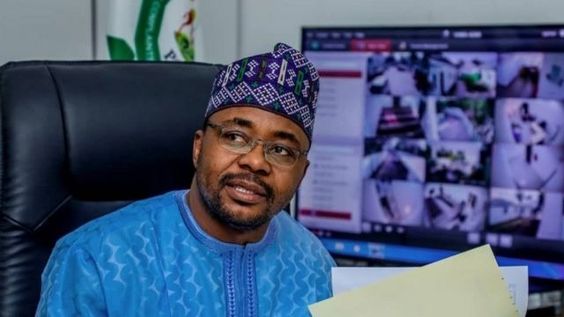Security & Crime
Alleged fraud: Kano anti-corruption boss’ motion ruling changed by CCT

In response to a move by Muhuyi Magaji, Chairman of the Kano State Public Complaints and Anti-Corruption Commission (PCACC), contesting the authority of the Code of Conduct Bureau (CCB) to bring charges against him, the Code of Conduct Tribunal (CCT) in Abuja has postponed its decision.
Read Also: Matawalle’s N70bn corruption case will be revisited by the EFCC
The three-member panel led by Justice Danladi Umar had initially scheduled today’s decision, but the tribunal postponed it.
The matter will no longer hold, a security guard at the entrance gate informed the News Agency of Nigeria (NAN) when they arrived at the CCT headquarters.
In the meantime, NAN was able to confirm with accuracy that the parties involved had received fresh notices of hearings.
Following the presentation of arguments and adoption of applications by Adeola Adedipe, SAN, Magaji’s attorney, and Musa Usman, CCB attorney, the tribunal set this date on Wednesday.
Adedipe presented his motion to the panel on notice dated in relation to charge number CCT/KN/01/2023.
Adeola brought up their two prayers, which were based on six reasons, to the tribunal’s attention when he was moving the motion.
The argument put forth was that on August 28, 2023, a Kano State High Court, presided over by Justice Farouk Adamu, issued an order prohibiting the CCB from meddling in the activities of his client or acting in any way related to those matters until the matter was resolved.
He reiterated that the court ordered the parties to maintain status in the Kano case, with CCB being the second defendant.
The prosecution, according to the senior attorney, disregarded the injunction by choosing to press the immediate charge against Magaji.
He claimed that bringing the complaint against Magaji in light of the tribunal’s presentation of Exhibit B constituted a self-help option.
He asked the panel to throw down all of the CCB’s processes, including the oral submission, on the grounds that they were not in conformity with CCT Practice Direction 2017’s obligatory paragraph 13(2), which allowed a party to respond to any process served on them within three days.
Adedipe claimed that it took the prosecution more than 30 days to react after they served them with their motion.
He sought the tribunal to halt the CCB from proceeding with the charge.
Usman asked the panel to reject the defence even if he disagreed with Adedipe.
He added that because the defendant relied on a Kano State ruling that omitted the word “prosecution,” the complainant was nonetheless able to institute the current action.
He stated that the injunction was obstructing the CCB from interfering with the defendant’s affairs and was not related to an investigation.
The Court of Appeal’s ruling in the case of Ewuno Bassey v. EFCC and others, according to the court, “is no longer in doubt that agencies given powers to investigate cannot be prevented or arms twisted from performing their duties,” he said on behalf of the Kano State High Court.
According to Usman, the defendant’s application and submission were without merit and should be regarded as such.
The decision, according to Justice Umar, would decide whether or not the trial would proceed. He deferred the subject for a ruling.
